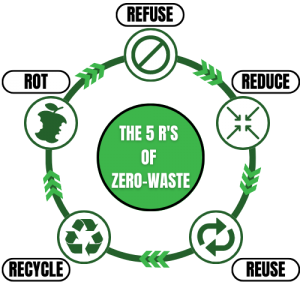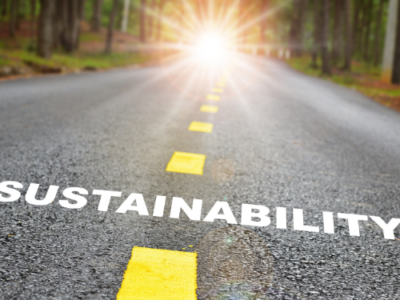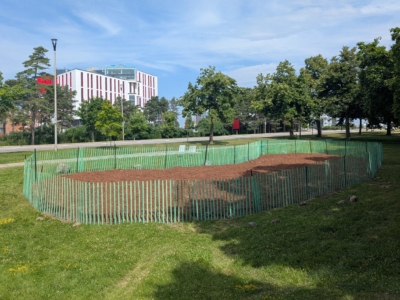It’s week 5 of Plastic-Free July, the final week, and we’re excited about your progress towards a plastic-free lifestyle with the 5 R’s of Zero-Waste: Refuse, Reduce, Reuse, Recycle, and Rot. These principles are interconnected and represented in a circular guide. Remember, tips can be used interchangeably between the R’s and may be repeated.

Last week, we focused on recycling our plastics that we were unable to reduce or reuse. Our final ‘R’ in the cycle of going plastic-free and/or zero-waste is Rot, also known as composting. While plastics typically cannot be composted, this ‘R’ can apply to contents found within the plastics that may remain after use.
Many items can be composted that you may not be aware of! Some of them are listed below, but as always, if you do not know where to dispose of an item, simply check out our Waste Wizard for disposal methods on campus. If live within the City of Ottawa, they also have their own search tool for waste disposal off-campus.
Composting at home is easy! You can find countertop compostable bins at most stores for your home or office. If you’re feeling adventurous and have the space at home, you can buy (or even DIY) your own composter and use it to help with your gardening!
Some common items that can be composted at Carleton University are:
- Food waste (apple cores, banana peels, chicken bones, etc.)
- Coffee grounds & filters
- Eggs and egg shells
- Tissues
- Paper towels and napkins
- Leftover fat and oil
- Paper straws
- Popcorn bag
- Paper take-out container
- Teabags (without the plastic)
Monday, July 31, 2023 in General, Sustainability Tip, Zero-Waste
Share: Twitter, Facebook



